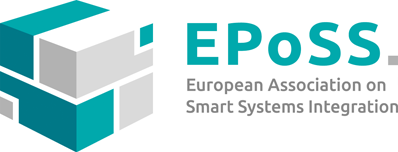
Intelligent reliability for electronics by smart sensors and AI
Electronics are omnipresent in our daily lives: traffic and mobility, industrial production and the energy sector, communication, media and the healthcare system are based on highly complex electronic components and systems (ECS). We are heavily dependent on electronics working fail-safe under any conditions and on the ability to detect reliability problems early on. Improving reliability by consistently reducing the failure rate is the central objective of the European Innovation Action iREL40 (Intelligent Reliability 4.0). EPoSS-member Hahn-Schickard uses a smart sensor system and artificial intelligence to detect damage patterns.
During each switching operation, strong thermal loads occur in power electronics, which over time can damage a module to such an extent that it fails. For this reason, special CMOS sensor chips from Hahn-Schickard are to be integrated into power-modules for the first time in the project. These sensor chips shall continuously monitor several signals that allow to detect the causes of damage during operation – as e.g. mechanical deformations or hairline cracks. The evaluation of the monitored signals by means of artificial intelligence (Embedded AI/Deep Learning) allows to recognise damage patterns and material fatigue at an early stage (Predictive Maintenance). Together with a suitable simulation model (Digital Twin), the operating parameters of the modules are then to be optimised in such a way that damage is minimised (leading to an increase in the lifetime and a reduction of the total cost of ownership). The practical testing of this innovative approach will be carried out in close cooperation with Schweizer Electronic AG in Schramberg, Germany, the Austrian partner AVL GmbH, which develops automotive electronics and testing technology, and the German Foundry X-FAB, which provides improved design tools for the sensor chips and will also manufacture them.
The project is part of the ECSEL Innovation Action iREL40 with 79 partners from 14 countries, which will be funded by the European Industrial Partnership ECSEL-JU and by 23 national funding agencies over the next three years with almost 50 Mio. Euros in total.
Other project partners want to use suitable simulations and modelling to get to the bottom of the physical causes of damage to electronics (keyword: Physics of Failure), to optimise materials, design methods and production technologies for chips, packages or complete electronic systems or to improve methods like “reliability validation” and “impact assessment”. Accelerating time to market by avoiding reliability problems and unnecessary design iterations - Reducing quality costs through improved analysis and AI-based knowledge of failure mechanisms - Improving functional safety through a zero defect approach - Reducing costs by moving from a reactive to a predictive understanding of reliability throughout the ECS value chain are just some of the other topics that will be addressed in this multidisciplinary and cross-linking project.
The action started on May 1, 2020 and will bring together for the first time world-leading reliability experts and European manufacturing know-how to create a sustainable pan-European "reliability community". Among the partners are 10 large companies alone, which operate semiconductor production facilities in Europe. Among the project partners are about a dozen EPoSS members as AVL, Bosch, cnm-imb, Elaphe, Fraunhofer, Hahn-Schickard, IK4-Ikerlan, IMEC, Infineon, RISE, and VTT. So, we will report continuously about the project and its achievements via the EPoSS media.
Through the close and multi-layered cooperation between industry, application-oriented research institutes and more basic research-oriented universities on the extremely challenging topic of reliability, the project secures more than 25,000 jobs - for example in the participating production and test sites in Europe. The expected project results will be incorporated into applications in the fields of energy efficiency, e-mobility, autonomous driving and the Internet of Things (IoT).
You can find some further details here
Share on
